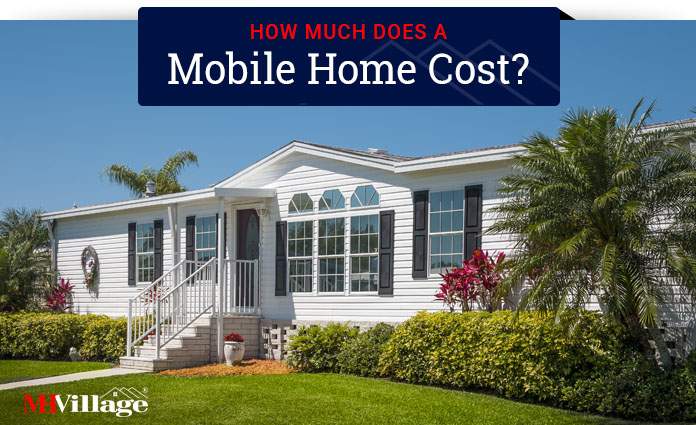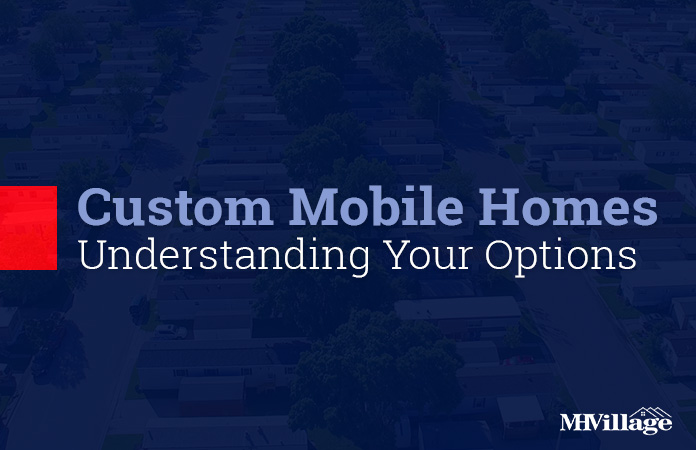There are many reasons people consider purchasing a mobile home, and savings is typically one of them. However, calculating the cost of owning a mobile home isn’t as simple as looking up a price tag from a manufacturer. Sophisticated styles, customizations, location popularity, community amenities—among other things—are all factors that affect the overall investment of owning a mobile home.
This guide is designed to help buyers learn about the many different factors that go into the cost of a manufactured home. By taking a close look at each variable and examining how it affects overall pricing, buyers will gain a better understanding of what they can expect to pay for a quality home.
From square footage to home features to important extras like taxes and utilities, these are the costs that you’ll need to be familiar with as you commence your hunt for the perfect mobile home.
Factors That Affect Mobile Home Cost
If you’ve ever wondered how much mobile homes cost, keep in mind there are many different factors that affect the price tag. When researching homes, pay attention to how the following can lead to differences in cost.
- Size & Type
- Materials
- Transportation & Installation
- Location & Timing
- Land & Community
- Utilities & Taxes
- Home Repairs & Upgrades
Size:
Square footage is one of the biggest factors in determining the cost of a manufactured or mobile home. More square footage means more room for your family, your possessions, and your life.
Mobile homes fall into one of three size categories. Single wide mobile homes are built and delivered as a single unit, while double wide mobile homes are built and delivered in sections that are joined together at the home site. Multi-section manufactured homes are triple wide or quadruple wide models that add more sections and more square footage. Exact dimensions and floor plans of each of these types can vary considerably, depending on the manufacturer, but most options fall within typical ranges. Although mobile home prices fluctuate just like site-built homes do, below are the average prices of each home type (plus its square footage and per-square-foot cost) from our latest data.
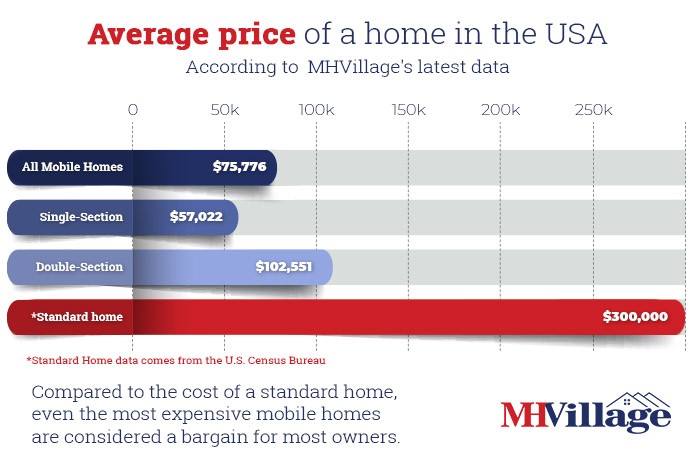
Single Wide Prices
A single wide mobile home (or single-section) is generally what people first picture when they think of what typically sits in a mobile home park.
- Average Sales Price: $57,022
- Average Square Footage: 1,075
- Average Price Per Square Foot: $53.04
- Floor plans typically include one to two bedrooms and one to two bathrooms
Double Wide / Multi-Section Prices
A double wide mobile home (or multi-section) combines the dimensions of two or more single section units to create a much larger living space. You might commonly refer to these varieties of mobile homes as double-wide or triple-wide trailers.
- Average Sales Price: $102,551
- Average Square Footage: 1,746
- Average Price Per Square Foot: $58.73
- Floor plans typically include two to three bedrooms and two bathrooms
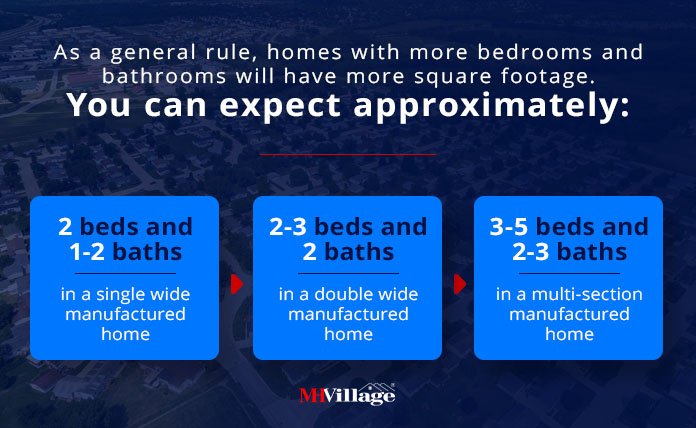
When searching through options for buying mobile homes, home sizing varieties can also include tiny homes, which are typically less than 400 square feet, and large multi-section homes, which are more than 1,800 square feet and contain three or more bedrooms with two or more bathrooms. A new tiny home will typically be more affordable than a single-unit home, and a large multi-section home will most likely be at the high end of the price range.
Our guide to mobile home sizes will help buyers understand more about what each size of manufactured homes offers. There’s no one-size-fits-all solution, and each family will need to consider their own space needs.
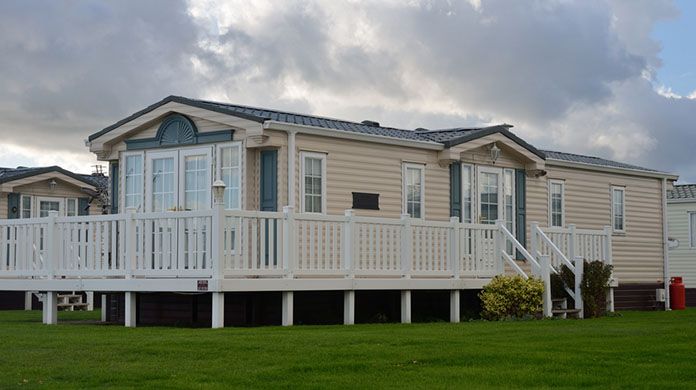
As with most investments, a new construction purchased directly from the manufacturer will typically be more expensive up-front than a unit of the same size sold by a previous owner.
Materials Used in Construction:
Prices for a mobile home also vary based on the materials and finishes used in the build. Higher-quality finishes and high-grade materials will give a mobile home a higher estimation compared to more value-based materials.
For example, customizing your mobile home with stainless steel countertops and appliances will be significantly more expensive than outfitting your space with laminate countertops and white appliances.
Transportation and Installation Costs:
While the average prices of different mobile home types typically include the cost of delivery and installation, not all dealers will include these expenses in the base price.
The cost of transporting your mobile home from the manufacturer and installing it will likely vary based on:
- How far it needs to travel
- The cost of following installation standards
- Any potential set-up fees or services
- Moving insurance if applicable
- Skirting the home, either DIY or using a professional
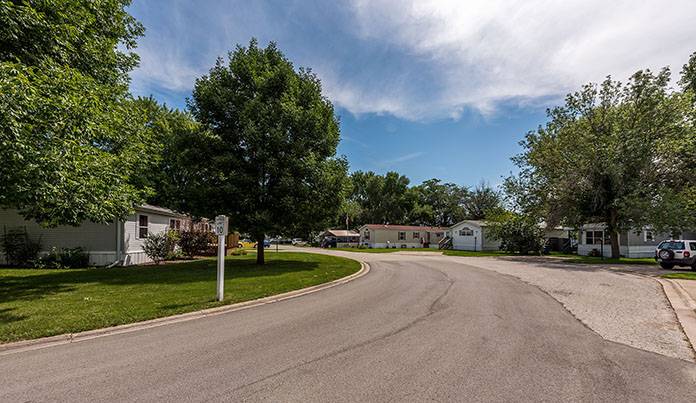
A new manufactured home will need to be delivered to your home site from the factory. Typically, manufacturers include delivery costs in the price of the home, up to a distance of around 100 miles, with additional fees averaging $6 to $15 per mile after that.
However, the homebuyer may be liable for additional costs, such as the cost of obtaining a permit to move the home. Make sure to check with the home builder about what you’ll be expected to pay for, potentially including labor costs to set and install the home.
States normally have specific laws surrounding the installation process to ensure safety and consistency, and owners might opt to hire a professional with experience in navigating the regulations.
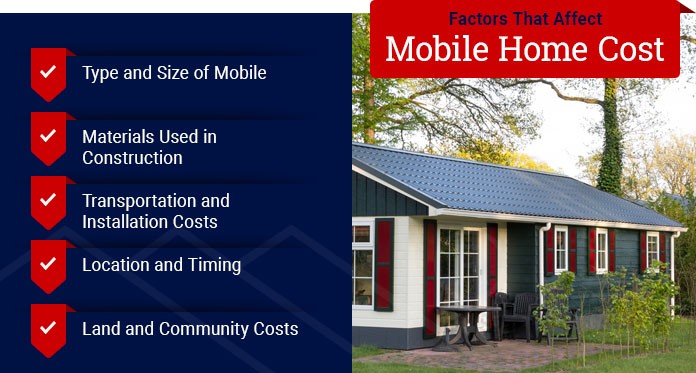
Location and Timing:
The mobile home market is similar to the overall housing market, in that certain areas are generally pricer than others. According to MHVillage data, in 2018 the average price of a new manufactured home varied greatly by region, with homes sold in the west being the most expensive, followed by those sold in the northeast, then the south, and, finally, the midwest.
- In 2018, the average mobile home price in the west was about $99,000—nearly $18,000 more than the average price of a mobile home in the midwest. (This data includes mobile homes with more than two sections.)
Just as it’s less expensive to buy a home or rent an apartment in the winter, the average cost of a mobile home tends to be cheaper during the colder months. Sales tend to spike in the spring and summer months: People are generally more likely to be out and about searching for a home when the weather is nice, which makes competition (and prices) higher.
Land and Community Costs:
When you purchase a mobile home, you’ve paid for the physical structure and, sometimes, covered the cost of moving and installation, but what isn’t included in this price is the cost of renting or owning the land on which you’ll place it.
Your manufactured home will need a home site on which to rest, and you’ll need to factor in the cost of purchasing or leasing that land. If you can afford the upfront cost and land is relatively inexpensive where you live, purchasing a lot can be a good investment that saves you money in the long term, but leasing a lot is also a good option for many homebuyers.
If you want to purchase your own home site, costs will vary widely with local land values and regulations. The average cost of land in the U.S. is $3,020 per acre, but there is considerable variation among states. State and local zoning laws often establish certain areas where manufactured homes are allowed, and they may also establish a minimum lot size for a manufactured home, so be sure to familiarize yourself with these laws before buying land.
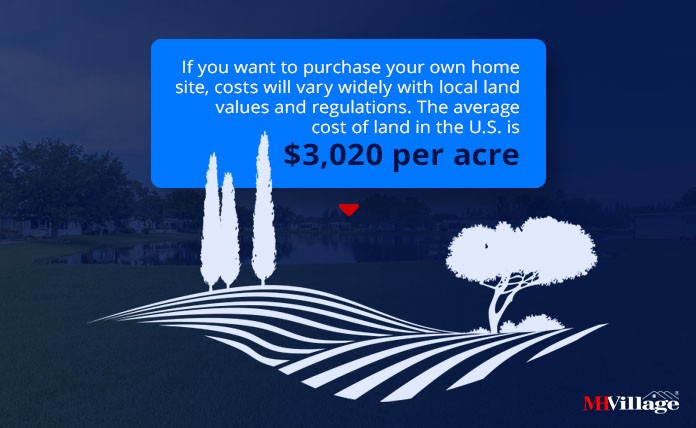
Leasing your lot is also an option, and if you’ll be placing your new home in a mobile home park, you’ll typically need to lease a lot (unless you opt for a resident-owned mobile home park). You’ll pay a monthly lot rent, which can vary widely anywhere from $400-$800 per month depending on the region. Some landlords will roll utilities into the lot rent, so make sure to ask the property manager exactly what is included in the lot rent.
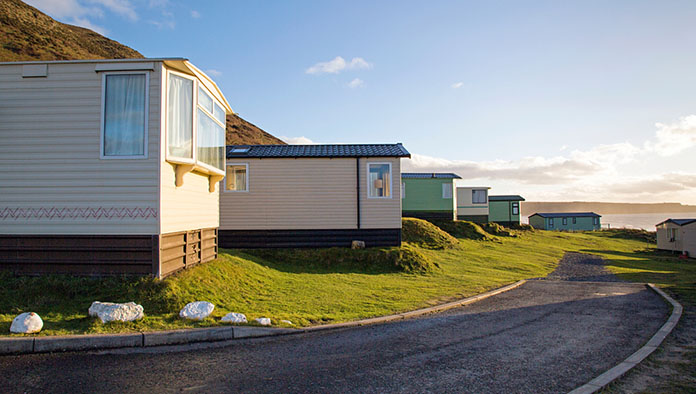
If you choose to purchase land to place your mobile home, remember that land prices are higher in certain areas of the country than others, by nature, and also vary based on size, terrain, proximity to amenities, scarcity, and zoning, among other variables.
In an estimation prepared by 24/7 Wall St., the top five states with the highest land value per acre are:
- New Jersey
- Rhode Island
- Connecticut
- Massachusetts
- Maryland
If you prefer not to purchase land, you may opt to rent it within a mobile home community. In this case, you will still own your home, but, instead of owning the land it lives on, you would lease it from the mobile home community itself.
Similar to purchasing land, rental prices will vary based on region, size, and features. While some no-frills parks rent just the land, other mobile home communities sometimes include a variety of additional amenities that are designed to enhance the homeowners’ experience and create a sense of belonging.
Some features that could affect lot rental price include:
- Community pool and/or clubhouse
- Gardens or community park
- Age-restricted communities (for example, a retirement community)
- Having a pet with you
- Grounds maintenance
- Accessibility to a city center with entertainment or shopping
More exclusive mobile home communities with luxury amenities and offerings will generally command a higher rental price than those with more baseline offerings. You might also be expected to pay Homeowners Association (HOA) fees in addition to your lot rent in some communities.

Utilities:
If you’re renting within a mobile home community, not all rent prices include the cost of utilities—and when you own the land, you’re completely responsible for all utilities. Additional expenses to consider include not just the cost of installation and setup of the following, but also the ongoing costs of their upkeep:
- Water, heat, and gas
- Sewage, garbage pickup, and general maintenance
- Television, electricity, cable, and phone service
There are several steps you can take to lower the cost of utilities for your manufactured home, including purchasing an ENERGY STAR® certified home and upgrading your home’s insulation. Make sure to talk to your builder about the home’s R-value to learn about how your home is insulated and options that may be available for improving energy efficiency.
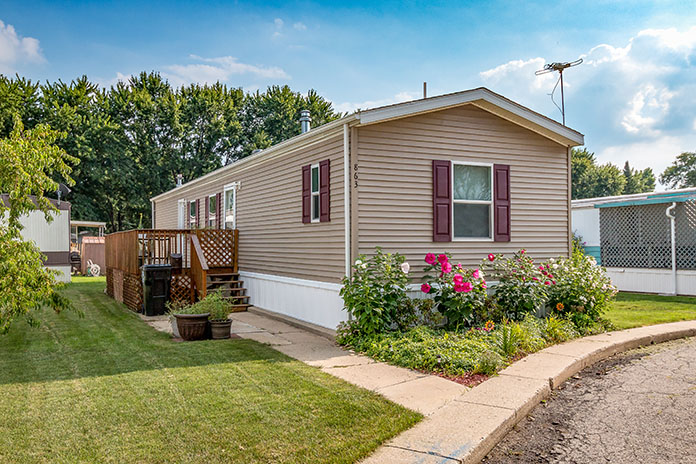
Taxes:
Manufactured homes are taxed at the state and local level, so tax obligations vary widely. The type of taxes you pay on your home will be determined by whether your home is titled as real estate or as personal property.
Manufactured homes attached to a permanent foundation and titled as real estate are usually taxed at the same rate as site-built homes in the same tax jurisdiction. The national average property tax rate is 1.15 percent of appraised home value, but some states have significantly higher or lower rates.
If your manufactured home is titled as personal property, you will usually pay annual taxes on it to your state’s DMV, much as you would with a vehicle. Some states, such as Michigan, don’t require any annual tax for manufactured homes titled as personal property. Instead, many of these states will levy a sales tax at the time you purchase the manufactured home. If you’re buying a manufactured home in one of these states, your builder will be able to inform you about your tax obligations.
If you rent your lot, some states will allow you to deduct lot rent on your annual taxes since part of it goes to pay your landlord’s property taxes. Check with your state department of revenue or county assessor’s office to learn whether you’re eligible to do this.
Repairs, Additions & Upgrades:
As you consider all of the aforementioned costs associated with buying and owning a mobile home, you will also need to keep in mind any additional expenses that may arise from potential repairs, renovations, and upgrades to your home.
Example Repairs
- Skirting
- Replacing windows
- Flooring
- Plumbing
Example Renovations/Upgrades
- Kitchen renovations
- Updating your home siding
- Replacing the wall panels
- Adding a porch or deck
- Roof over
What’s the Right Price?
It’s very difficult to attribute one price point to all mobile homes, as there are so many different variables that affect it. When shopping for mobile homes, it’s really important to understand which elements and features result in different price points, and attribute a personal value to each of them.
- Does your family need the space of a multi-wide mobile home, or are you an individual or couple who only needs a tiny home?
- Is your preference to rent within an amenity-rich mobile home community, or would you prefer to purchase land in a secluded area far from a city center?
- Are luxury trims, finishes, and landscaping important to you, or are you happy with baseline options?
All in all, the best mobile home is one with a combination of features that matter most to its owners. There are home options to suit all sorts of different tastes; finding the mobile home that’s priced right is more about finding the home that’s right for you.
Why People Choose Mobile Homes
So, why would someone choose to buy a mobile home over a traditional home? Here are some of the most common reasons why people opt for mobile homes:
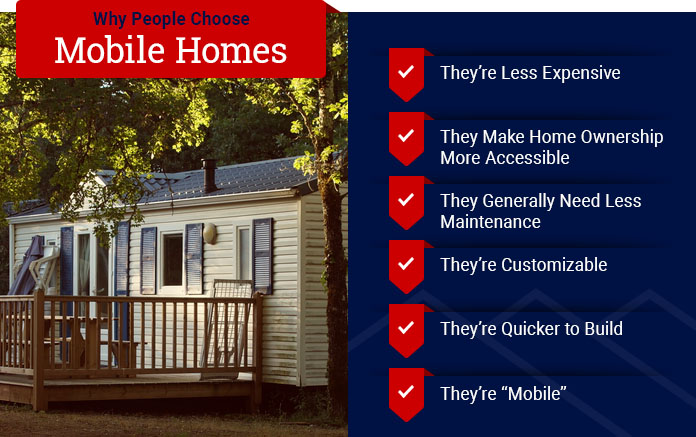
- They’re Less Expensive: Although pricing of mobile homes varies based on many different factors, they are still generally less expensive than traditional homes. For those who cannot or do not want to take on the significantly higher mortgage of a traditional home, a mobile home might be a better option.
- They Make Home Ownership More Accessible: Some people view renting as “throwing away” money month after month. Investing in a mobile home allows you to put money toward a valuable asset.
- They Generally Need Less Maintenance: Since mobile homes are built under controlled conditions in adherence to federal standards, the quality is highly consistent, which means the homes are less likely to develop surprise maintenance issues down the road.
- They’re Customizable: Mobile homes have gotten quite sophisticated in recent years, and they can be customized by floor plan, style, material, finish, and more.
- They’re Quicker to Build: While a traditional home can take six months or more to build, turnaround time on a new mobile home construction can be as little as a couple of weeks. For those looking for a new home, fast, this is a great option.
- They’re “Mobile”: Mobile homes can be permanent or semi-permanent residences. While it’s generally recommended that mobile homes stay where they are once they’ve been installed, if you really wanted to move somewhere, but not go through the process of selling the home you love, you could technically bring it along with you.
One Final Thought:
To find the perfect manufactured home for your family, it’s important to have the full range of resources on home pricing, how to evaluate a home, and how to make an offer. You’ll find this critical information in our Mobile Home Buyer’s Guide, plus tons of other useful tips to make your manufactured home hunt a success.
